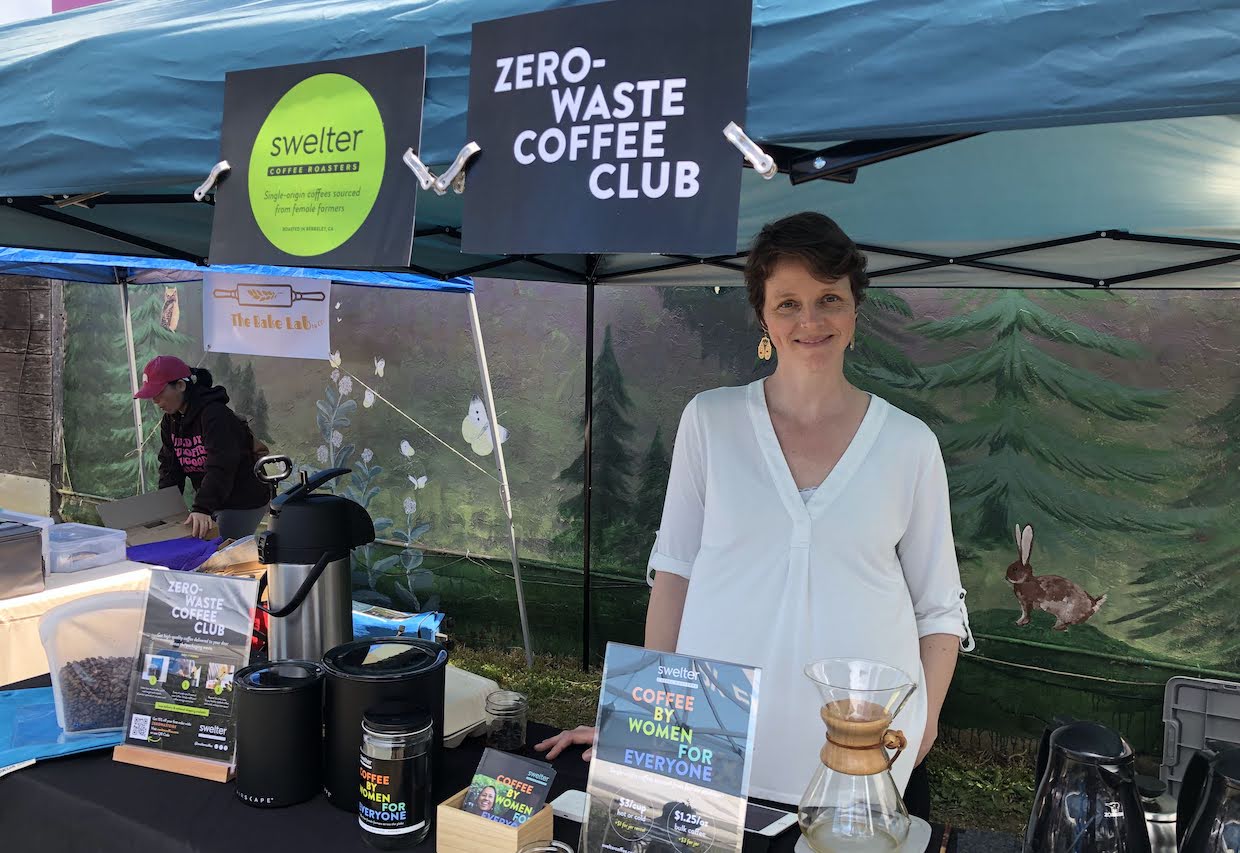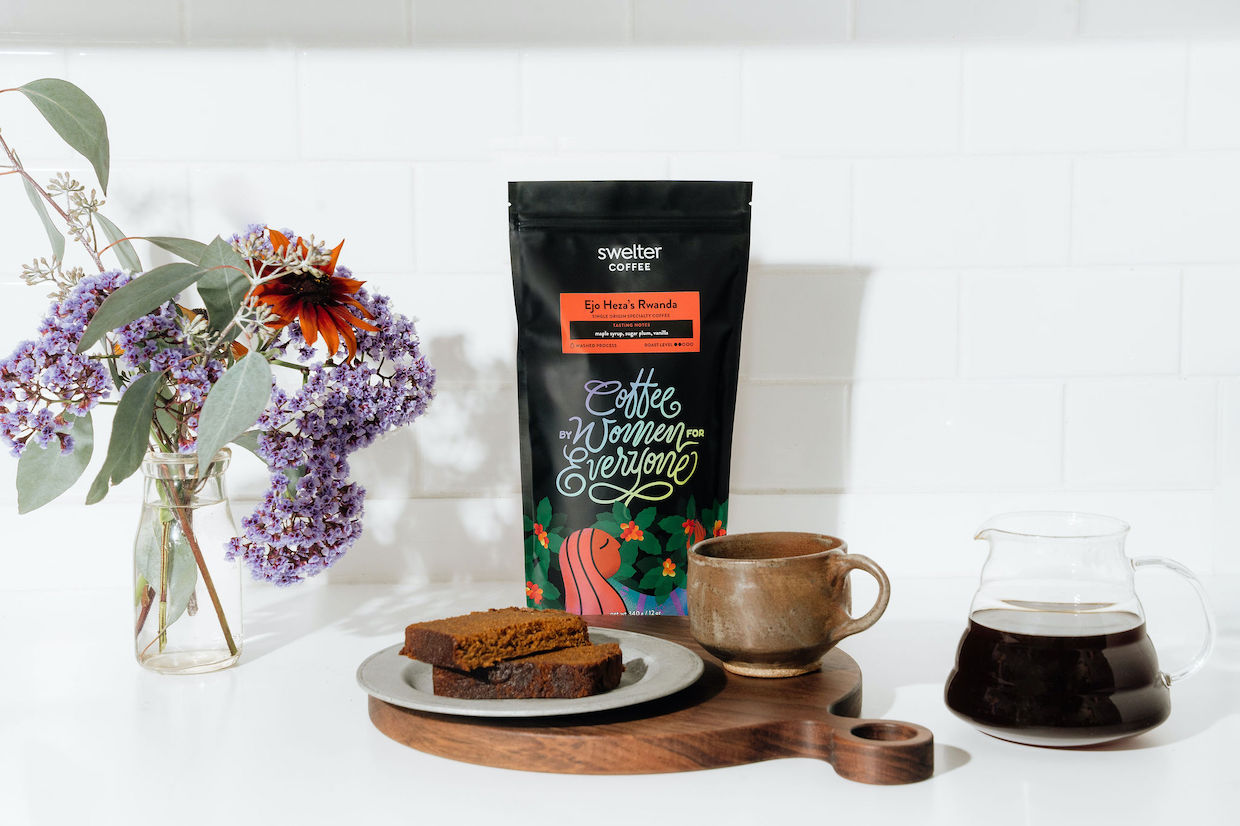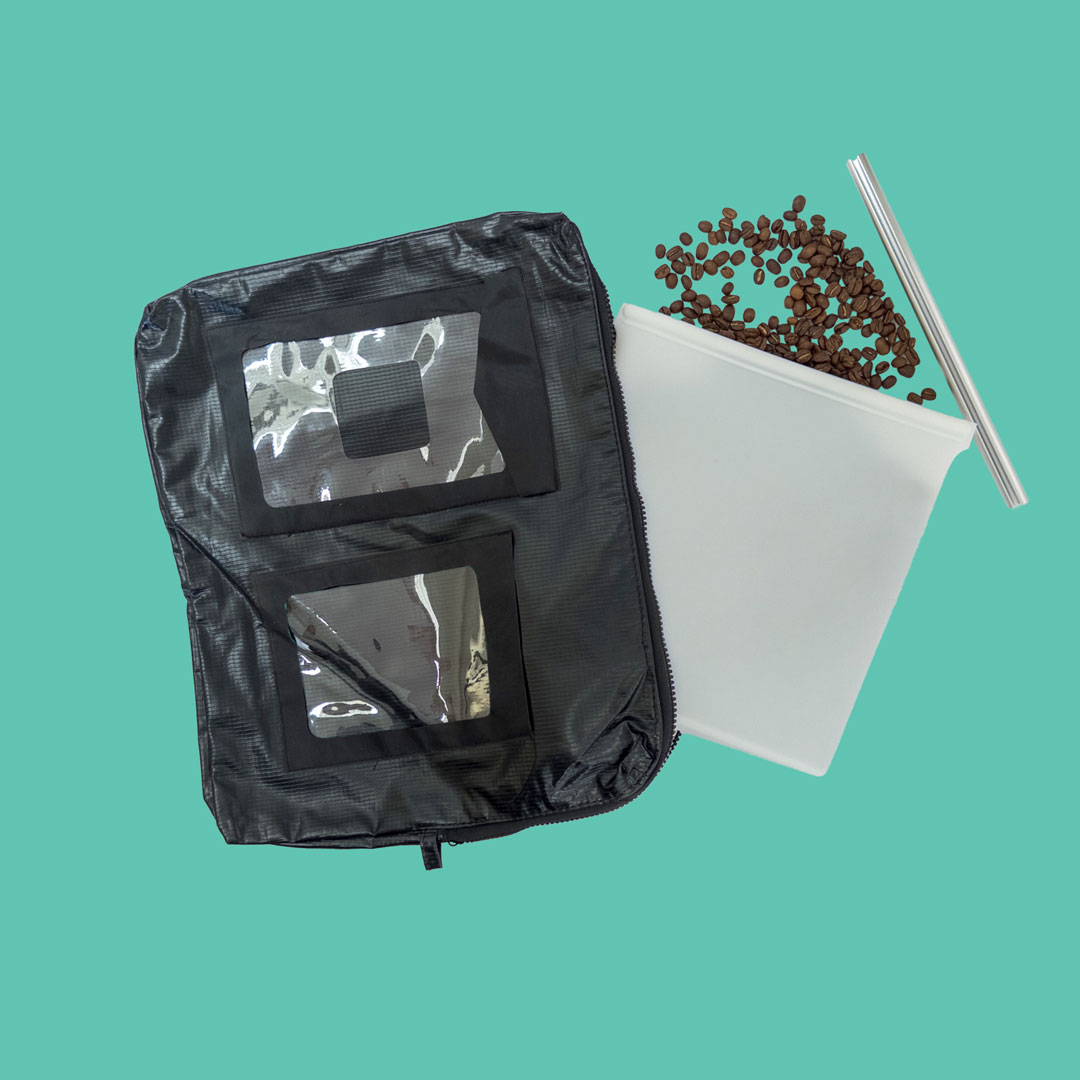Stephanie Welter-Krause was first inspired to roast coffee while thumbing through the home roasting section in the influential 2012 book, The Blue Bottle Craft of Coffee, written by James Freeman, Caitlin Freeman and Tara Duggan.
“Why am I not doing this?” Welter-Krause said to herself back in 2013, before gathering the necessary supplies and roasting her first batch of coffee on a sheet pan in her Bay Area apartment oven. Little did Welter-Krause know that it was the first step in a transformative journey in coffee, climate action and gender equity.
“I started discovering all these different flavors. I’d buy a pound of this and a pound of that and play with it in my oven,” Welter-Krause recently told DCN. “I loved it.”
A Portland, Oregon, native who’s now based in the Chicago area, Welter-Krause was initially hesitant to get into roasting professionally, despite the urging of friends and family who received many of those early roasts.
“I was like, ‘hell no!,’” Welter-Krause said. “We need another coffee company like we need [a] hole in our head.”
That attitude began to shift after Welter-Krause engaged with Project Drawdown, the climate change solutions initiative led by Paul Hawken. The home roaster was particularly inspired by the idea that supporting women in leadership roles in smallholder coffee production is one proven way to support positive environmental and social sustainability outcomes.
In 2020, Welter-Krause scaled back her work as a graphic designer to launch Swelter Coffee Roasters, with a clear focus on sourcing coffees that support women throughout the supply stream.
Today, Swelter sources women-produced coffees from Artisan Coffee Imports, Mighty Peace Coffee, Bean Voyage and the family farm of Lillian Rodriguez in Guatemala, Santa Marta. Swelter recently moved operations to the brand new Chicago co-roastery Tailwind Roasting.
Swelter Coffee continues to donate 5% of its coffee sales to organizations supporting women. Currently, the proceeds are donated to Bean Voyage.
Swelter Coffee has also started a zero-waste coffee club, which has grown to nearly 60 subscribers. Subscribers receive coffees in zero-plastic reusable packaging, then ship the packaging back with an included return label. Swelter then sanitizes the packaging for reuse.
Here’s more from DCN’s recent chat with Stephanie Welter-Krause…
What about coffee excites you most?
I still come back to this notion of community. Coffee is this delicious thing we have every morning. It sets our day, and if you stop and think about what it means to you and the global community that you tap into by drinking it, it just gives me goosebumps. What else in our lives has such global reach? It takes so much care and skill to coordinate, grow and nurture that it creates community locally and globally. It’s a connection, storytelling, and there are so many layers. That’s what I love so much about coffee, and the notion that we can try and make it better for the folks who are growing it.
What about coffee troubles you most?
The environmental direction of climate change and the weight it’s putting on the producing side. That’s really troubling. I know there are ‘Western’ folks trying to help, but I don’t know how effective that is. It’s incredibly troubling how ingrained colonialism is still. You can’t really get away from it, but we can still try to make it better.
What would you be doing if it weren’t for coffee?
I would still do design. I was a painter and fell in love with design sort of accidentally.
Comments? Questions? News to share? Contact DCN’s editors here.
Jen Roberts
Jen Roberts is a Paris, France-based writer and avid coffee drinker. She’s currently writing a book on women in coffee.









Comment